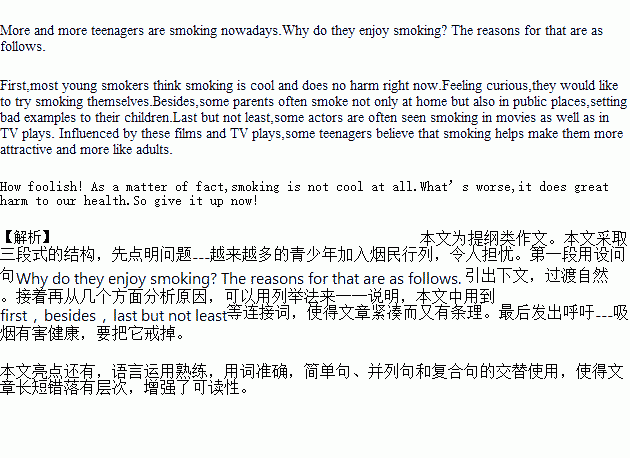��Ŀ����
Ϊ������Ľ�����һЩ��������ڹ�������ʵʩ�˽��̣�Ȼ����֮��Э�����ǣ�Խ��Խ������������ڼ�����������С������������ʾдһƪ���ģ�������������������ԭ�������������̡�
ԭ��1.��Ϊ���̺ܿ
2.��ĸ���̣������˻�������
3.��Ӱ����Ʒ�����������Ӱ�졣
����������һ�㶼���ᣬ���Ͻ��̰ɣ�
ע�⣺1.����100���ң�
2.���ʵ�����ϸ�ڣ���ʹ�������
3.��ͷ�ͽ�β�Ѹ������������ܴ�����
More and more teenagers are smoking nowadays.Why do they enjoy smoking?
____________________________________________________________________________________________
____________________________________________________________________________________________
____________________________________________________________________________________________
____________________________________________________________________________________________
____________________________________________________________________________________________
____________________________________________________________________________________________
____________________________________________________________________________________________
____________________________________________________________________________________________
_________________________________________________________________
 ����������ϵ�д�
����������ϵ�д�
